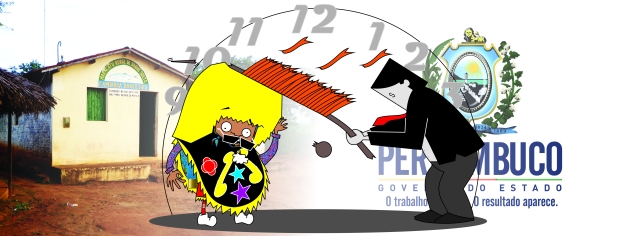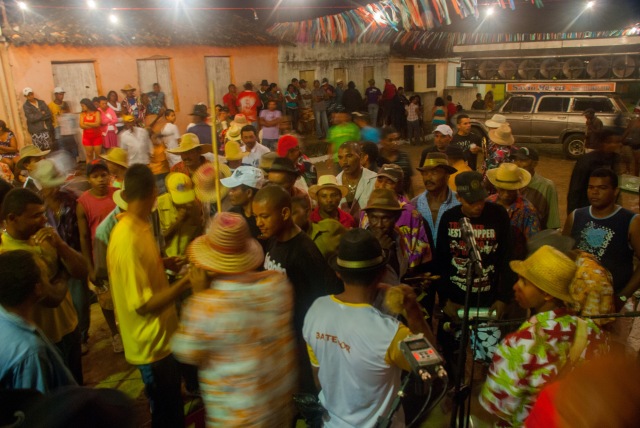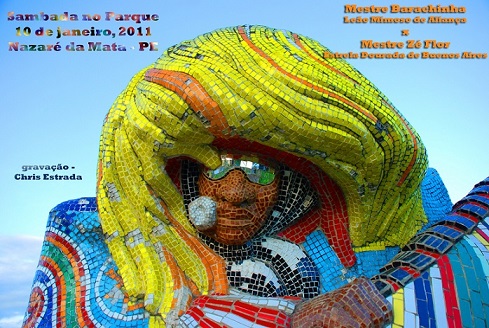It may be the traditional “off season” for maracatu, but there is no rest for the maracatuzeiro! Even though it’s the season of festas juninas and São João, there’s a big maracatu event this month at the headquarters of Estrela Dourada in Buenos Aires (in the Mata Norte of Pernambuco). Along with being able to hear Barachinha and a full roster of invited mestres take the microphone during the night, Estrela Dourada will also be honoring the esteemed caboclo João Carreiro, the patriarch of a large and wonderful family all heavily involved in popular culture, who passed away last year. The evening will start with a procession from the town’s main plaza at 9:30 p.m. and descend in a manobra to Estrela Dourada’s headquarters near the main entrance off the highway.
This event was organized by André de Lica, a young mestre and man who wears many hats. He has hosted a radio program in Nazaré da Mata for many years, worked as an MC and announcer for scores of cultural events, and has recently ventured into organizing and producing his own. I won’t be able to make this but I’m sure it will be a fun time and wish them the best of luck!






